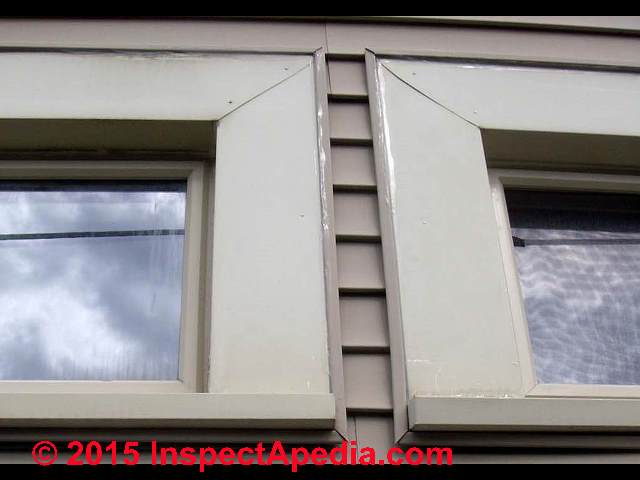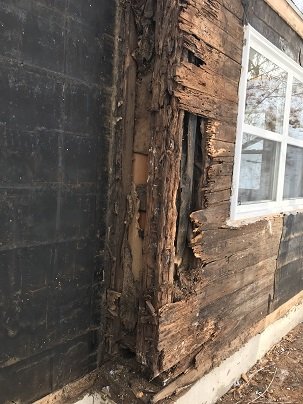If a new roof develops a leak is the roofer liable for interior damage a new roof system was installed october 2013.
Interior drywall damage due to leak from damaged siding.
The key is to minimize the amount of water that saturates the drywall.
Water can also seep in behind faux stone and other external walls around your home.
Your siding may need to be replaced if rodents or other pests have been able to find their way in and live between your interior walls and exterior siding.
Under certain limited circumstances drywall can be retained after water damage.
To do this cut a rectangular piece from a new piece of drywall and bevel the edges at a 45 degree angle.
Replace the drywall and be sure that it has countersunk 1 16th of an inch.
Termites can destroy wood siding although they won t touch hardieplank or vinyl siding.
A water leak developed that will require replacing insulation ceiling and wall board replacement wallpaper and carpet cleaning my question is should the roofer or his insurance be responsible for the cost of these repairs the roofer is recommended by you.
Building siding window or wall leak detection diagnosis repair procedures.
This article describes the discovery of both active and prior leaks through a building s walls or windows and the steps that were taken to evaluate the impact of the leaks on the structure to track down the leak sources and to fix the problem both in stop gap mode due to weather and time constraints and as final.
Remove the drywall immediately so that it doesn t start to grow mold.
Here the biggest danger is water seeping in behind your siding and causing permanent damage to more vulnerable materials.
The day after the leak do the test with your finger to see how stiff the drywall is.
One of the common questions we receive from townhome associations is regarding damage to the interior of a townhome unit resulting from a roof leak or ice damming that causes water to infiltrate into a unit and damages carpeting flooring furniture etc.
Hidden water leaks are dangerous because they can cause serious issues like structural damage and mold growth before they are discovered.
While low cost and versatility make it a very practical interior construction material resistance to water exposure is not one of drywall s strong points.
If the bulges in your drywall caused by water or improper fastening are less than 8 inches in size you may be able to repair the problem by replacing only the area that is damaged.
So if this happens you will need to remove or replace the siding quickly before rot sets in.
Water damage is a common reason for drywall replacement in homes.
Fixing water damaged drywall is necessary not only because it looks terrible but because the drywall will not hold up due to it being weakened and can even be dangerous to your health.
Excess water and moisture gets absorbed in wood drywall insulation and wallpaper which can lead to warping stains bubbling and deterioration.
Rot or mold if moisture is able to enter through your siding it has failed.
If it s solid you may just have to repaint and not replace drywall.





























